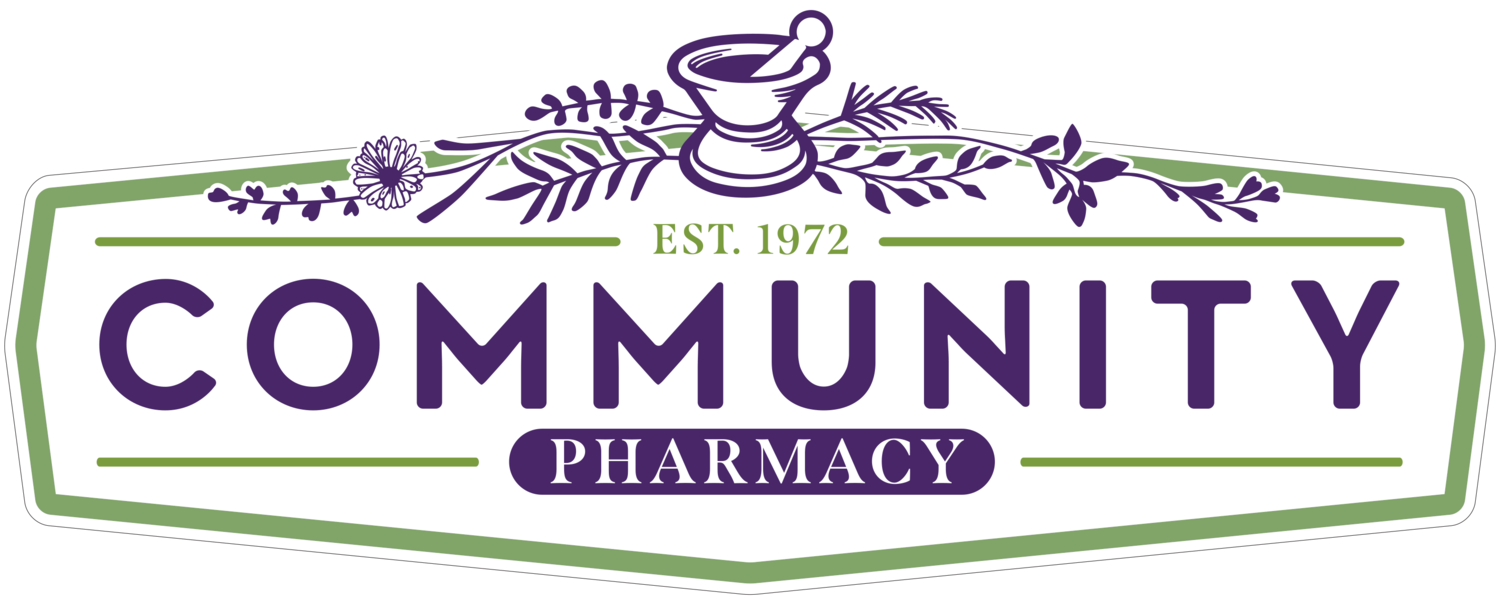How to Make Herbal Teas and Infusions
Herbal teas and infusions, rich in a wide array of essential vitamins, minerals and beneficial medicinal compounds, have been used for centuries to comfort, soothe and heal. Depending on the individual plant and the part of the plant being used, you’ll want to apply the appropriate steeping method to ensure that you get the most out of your preparation. At Community Pharmacy and Community Wellness Shop in Middleton, you’ll find a wide variety of high-quality, dried herbs, as well as plenty of advice on how to choose what’s right for you.
The Basics: There are a few things you can do to create the perfect herbal water extraction.
If using chlorinated or unfiltered water, boil it for ten minutes to help reduce impurities. Boiling the water in a non-metallic pot is ideal to prevent any leaching (be sure to avoid aluminum pots altogether).
Mare sure to always cover the pot or jar you use for steeping herbs to prevent beneficial compounds from escaping in the steam or reacting with oxygen.
To strain your preparation, a fine mesh strainer or cheesecloth both work well.
Herbal water extractions should be stored in the refrigerator and consumed within 24-48 hours.
TEA: Fragrant herbs, seeds and delicate flowers
Tea is the most expedient method of water extraction. Teas are medicinally beneficial when steeping fragrant herbs such as peppermint, and delicate flowers like chamomile. The herb-to-water ratio when preparing tea is 1 T dried herb/cup of water (if fresh herbs are used, double the amount). Teas require steeping time of only 10-20 minutes. Seeds, like fennel, should be steeped for 30 minutes.
INFUSION: Leaves, stems, and hearty flowers
Leaves, such as those from dandelion, and heartier flowers like hibiscus, should steep for longer. Most medicinal infusion recipes recommend drinking 1-4 cups of infusion throughout the day. To make a quart of infusion, place 1 oz (approximately 1 cup) of dried herb in a quart mason jar, fill the jar to the top with boiling water (if using a pint jar, halve the amounts). Cap tightly and let steep 4-8 hours (or overnight if you want to extract the mineral content of herbs like nettles).
DECOCTION: Roots, barks, and berries
An alternative method to long infusions for tougher plant materials, a decoction also ensures a through water extraction. Use 1-2 oz (¼-½ c) of dried herb to one quart water in a pot, bring to a boil and simmer 10-20 minutes before straining.
COLD WATER INFUSION
Some herbs, such as those rich in mucilage like marshmallow root and slippery elm bark, are better suited to cold water extraction. Place 2 oz (approx ½ c) of dried herb in a quart mason jar and fill the jar to the top with cold water. Cap tightly and steep for 8-10 hrs.
Adapted from Community Pharmacy materials prepared by Emily Light (12/04)




